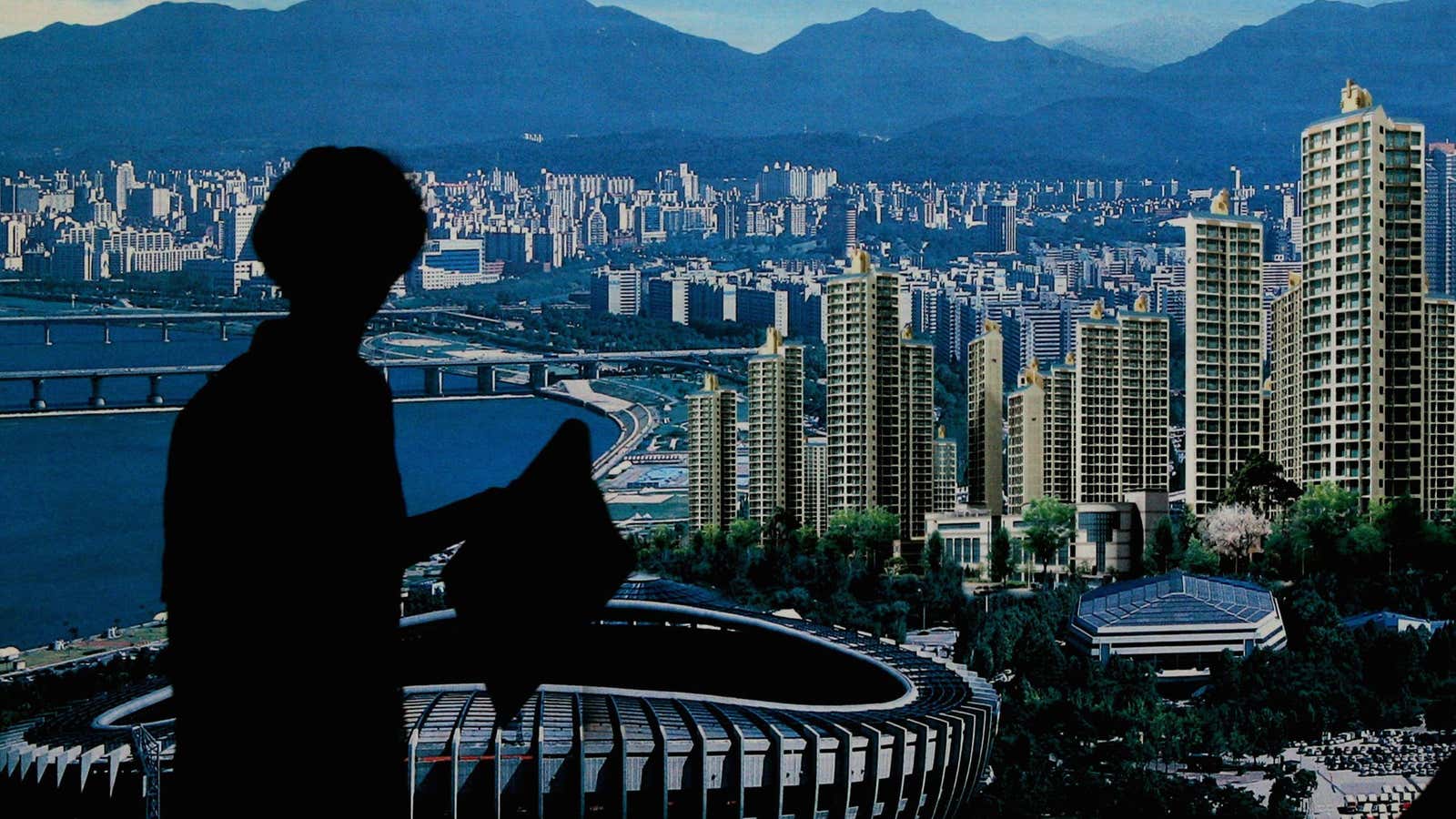Beginning in the late 1970s and through the 80s, the dollar’s fast drop against the yen caused a real estate frenzy for Japanese investors who bought skyscrapers, houses, condos, and other property in Hawaii. The Japanese “came to town and just started buying and didn’t care what the price was,” one Honolulu broker told the New York Times at the time. Sound familiar?
Today, the Chinese have become the new Japanese and South Korea’s Jeju Island—a popular tourist destination for the Chinese and Japanese (and the destination of the Sewol ferry that sunk this April)—is 1980s Hawaii. To the Koreans, Jeju is a cultural treasure, stamped by UNESCO as a world heritage site. It’s also possibly becoming a new epicenter for technological development in South Korea, with Korean internet company Daum Communications relocating its headquarters there. For the Chinese, it’s a hot tourism spot close to home where they can stay visa-free for up to 30 days. Jeju attracted 2.3 million foreign tourists last year; 1.8 million of them were from China. This year, the number of Chinese visitors to Jeju is expected to swell to 5.6 million.
In the past five years, the amount of land on Jeju owned by mainland Chinese has increased from a reported 20,000 square meters to 5.92 million square meters, with nearly half of the new property purchases occurring in the first half of this year.
A big part of the lure for Chinese investors is the ability to obtain permanent resident status (and along with that status, the same medical and educational benefits as ordinary South Koreans). The island’s visa policy is responsible for bringing 860 billion won ($830 million) in investment to the island just in the first six months of 2014.
While foreign investment was the primary goal of the immigration rules, Jeju locals and officials are concerned that the foreign capital isn’t benefiting the island’s employment rates—but it is driving up housing prices, making it more difficult for locals to buy property.
Most of Jeju’s residents are islanders with a distinct culture from mainland Korea—their own dialect, traditions, and folklore. They also share a growing resentment to the influx of tourists. The increasing influence of Chinese investors and tourists has local officials concerned that Jeju will turn into a “Chinatown,” according to Chinese news site Global Times.
In an effort to manage the growing interest in Jeju, the government suspended some Chinese real estate projects on the island earlier this year, according to Global Times, and is currently pushing to increase the amount of money that foreigners need to invest before obtaining a permanent resident visa. Currently, one needs to invest 500 million won ($480,000). With revisions that some local officials hope will occur within the year, investors would need to commit somewhere between 1 billion and 2 billion won ($970,000 to $1.93 million) for the same visa.
